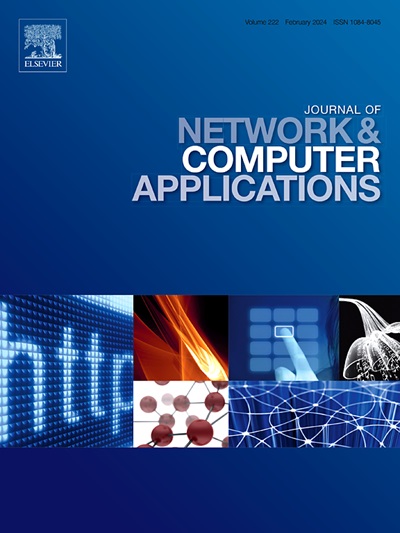基于强化学习的智能微电网多智能体系统
IF 8
2区 计算机科学
Q1 COMPUTER SCIENCE, HARDWARE & ARCHITECTURE
引用次数: 0
摘要
由于动态负载变化、波动的网络条件和潜在的组件故障,智能微电网(SMG)通信网络在保持高服务质量(QoS)方面面临着重大挑战,这些故障会增加延迟、降低吞吐量并危及故障恢复。分布式可再生能源的日益整合需要自适应和智能的路由机制,能够在这种多样化和易故障的条件下有效运行。本文提出了一种基于q -强化学习的多智能体Bellman路由(QRL-MABR)算法,该算法通过在每个网络智能体中嵌入q -学习模块来改进传统的MABR方法。智能体动态学习最优路由策略,通过自适应温度缩放平衡探索和开发动作选择,共同优化延迟、吞吐量、抖动、收敛速度和故障恢复能力。在IEEE 9、14、34、39和57总线SMG测试台上的仿真结果表明,QRL-MABR显著优于传统路由协议(MABR、RIP、OLSR、OSPFv2)和基于路由的高级算法(SN-MAPPO、DDQL、MDDPG、SARSA-λ、TD3),时延降低16%-28%,吞吐量提高14%-16%,抖动改善17%-21%,故障恢复能力更强。因此,QRL-MABR为下一代智能微电网提供了一个强大、可扩展和智能的框架。本文章由计算机程序翻译,如有差异,请以英文原文为准。
Reinforcement learning based multi-agent system for smart microgrid
Smart microgrid (SMG) communication networks face significant challenges in maintaining high Quality of Service (QoS) due to dynamic load variations, fluctuating network conditions, and potential component faults, which can increase latency, reduce throughput, and compromise fault recovery. The growing integration of distributed renewable energy resources demands adaptive and intelligent routing mechanisms capable of operating efficiently under such diverse and fault-prone conditions. This paper presents a Q-Reinforcement Learning-based Multi-Agent Bellman Routing (QRL-MABR) algorithm, which enhances the traditional MABR approach by embedding a Q-learning module within each network agent. Agents dynamically learn optimal routing policies, balance exploration and exploitation action selection with adaptive temperature scaling, and jointly optimize latency, throughput, jitter, convergence speed, and fault resilience.
Simulations on IEEE 9, 14, 34, 39, and 57 bus SMG testbeds demonstrate that QRL-MABR significantly outperforms conventional routing protocols (MABR, RIP, OLSR, OSPFv2) and advanced RL-based algorithms (SN-MAPPO, DDQL, MDDPG, SARSA-, TD3), achieving 16%–28% delay reduction, 14%–16% throughput gains, 17%–21% jitter improvement, and superior fault recovery. Thus, QRL-MABR provides a robust, scalable, and intelligent framework for next-generation smart microgrids.
求助全文
通过发布文献求助,成功后即可免费获取论文全文。
去求助
来源期刊

Journal of Network and Computer Applications
工程技术-计算机:跨学科应用
CiteScore
21.50
自引率
3.40%
发文量
142
审稿时长
37 days
期刊介绍:
The Journal of Network and Computer Applications welcomes research contributions, surveys, and notes in all areas relating to computer networks and applications thereof. Sample topics include new design techniques, interesting or novel applications, components or standards; computer networks with tools such as WWW; emerging standards for internet protocols; Wireless networks; Mobile Computing; emerging computing models such as cloud computing, grid computing; applications of networked systems for remote collaboration and telemedicine, etc. The journal is abstracted and indexed in Scopus, Engineering Index, Web of Science, Science Citation Index Expanded and INSPEC.
 求助内容:
求助内容: 应助结果提醒方式:
应助结果提醒方式:


